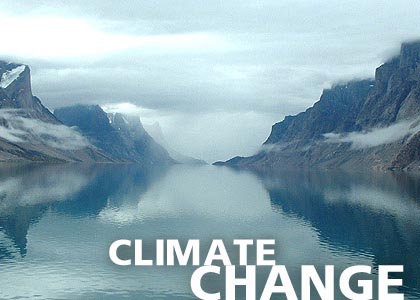UN climate diplomacy bogged down in slow negotiations
 New York - Imagine the presidents of the United States and China talking about the weather instead of trading blows over tyre- import tariffs and the global economic crisis.
New York - Imagine the presidents of the United States and China talking about the weather instead of trading blows over tyre- import tariffs and the global economic crisis.
Barack Obama and Hu Jintao, leaders of the world's two largest emitters of greenhouse gases, will be closely watched as they offer their thoughts on climate change Tuesday. They will be part of a summit of world leaders on the topic at United Nations headquarters in New York.
The UN badly needs their unstinting support or its "Seal-the-Deal" campaign, aimed at getting a global climate treaty agreed to by a December summit in Copenhagen, will falter. Governments have already spent months in painstaking negotiations towards a new treaty that could replace the Kyoto Protocol, which expires in 2012.
The 86 presidents and 36 prime ministers scheduled to meet Tuesday will have one day to debate the issue during four roundtable sessions.
The summit is being billed as an effort to inject political momentum into the negotiations and marks the beginning of what many believe is a make-or-break autumn for efforts to reach that elusive global agreement.
Leaders of the Group of 20 (G20) nations will consider how to finance efforts to stop global warming at their own two-day summit beginning Thursday in Pittsburgh, Pennsylvania. There are then two more rounds of climate negotiations before Copenhagen: In Bangkok from September 28 to October 9 and in Barcelona from November 2-6.
UN Secretary General Ban Ki-moon has admitted that the slow pace of talks is a "matter of concern." He said leaders should this week issue their "marching order" to negotiating teams "to accelerate progress towards a fair, effective, comprehensive and scientifically ambitious global climate agreement."
The UN is banking on Obama to make Copenhagen a success. The US president has given strong support to the UN, particularly on climate change issues and nuclear disarmament. If the US takes the lead in climate change, the UN says Copenhagen could end in success.
That is a tall order. Legislation to curb emissions of greenhouse gases has stalled in the US Senate, and some leading lawmakers have suggested a bill might have to wait until next year. That could tie Obama's hands at the Copenhagen summit: He will not want to agree to anything unless convinced that Congress will back him up.
"It certainly has been and continues to be a real uphill struggle," said Jonathan Lash, president of the Washington-based World Resources Institute. "The (US) administration has begun to lower expectations for Copenhagen."
Scientists have a major role in convincing politicians to act before atmospheric temperatures will become hotter, causing irreversible damage to the world's ecosystem.
Cutting down greenhouse gas emissions blamed for climate change has been a relentless message, but getting down to levels demanded by scientists has divided rich and poor countries and set politicians against each other.
The poor accuse industrial nations of causing global warming and argue it is unthinkable for them to jeopardize their emerging economies by meeting the rich nations' demands for stronger action.
Thorny issues include sharing of clean energy technology, what kind of targets countries should be given on lowering their emissions, and how much financial support rich countries are prepared to give developing countries to help them combat the climate crisis.
"Clearly, the road is rough ahead," Susan Rice, the US ambassador to the United Nations, told reporters last week. "I don't think anybody comes with any illusions."
Ban, who made climate change a personal crusade and top priority for the world body, will play a cheerleading role for the world's powerful nations to get their act together and line-up behind Copenhagen. Without a new document in December, the UN would lose momentum in global efforts to combat climate change.
The UN Framework Convention on Climate Change (UNFCCC) has called for the maximum - up to 95 per cent of carbon reduction by 2050, preceded by intermediate measures suggested at 45 per cent by 2020 from 1990 levels.
The march towards Copenhagen has been difficult, with a series of unsettling negotiations held in various capitals. The world's eight leading industrialized nations at a summit in L'Aquila, Italy, in July pledged to limit the Earth's warming to 2 degrees Celsius by 2050.
The UN said the pledge did not go far enough and demanded more drastic and clear intermediate actions by 2020. Yvo de Boer, the secretary of the UNFCCC, fears the talks have been so slow that there won't be enough time before the December 8-17 summit in Copenhagen. (dpa)